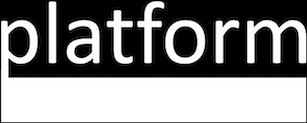A founder has to wear multiple different hats - this is reasonably well known.
What makes it truly hard is in the interaction between those hats, and knowing when to wear each one.
Hat #1: Founder as first salesperson - customer listening/empathy, consultative selling.
Hat #2: Founder as COO - hiring scrappy, hard-working, generalist people to make customers happy and keep them paying while the product catches up.
Hat #3: Founder as data analyst - getting the right data, analyzing it correctly, and making it actionable.
Hat #4: Founder as first product manager - turning customer anecdotes and data into product prioritization to drive the core metrics, while at the same time sniffing out bits that can be automated in product so you can scale, without adding headcount.
Hat #5: Founder as CFO - being attentive to runway, burn rate, and unit economics.
Hat #6: Founder as systems thinker - being able to zoom out and in, at see how the machine is working at every level of scale.
This is not simply a sequential list - each of these viewpoints feed on one another. You always have to be keeping an eye to the other hats when you’re wearing any one of them.
Why is it so hard?
Firstly, it’s simply trickly to wear lots of different hats and avoid the cognitive dissonance caused by switching between them.
It’s also hard because the vast majority founders won’t have had functional experience in all 6 of the areas in prior jobs, so they’re missing parts of the puzzle.
It’s even harder because founders lack a large enough sample size of startups to know what is normal for an early stage startup, and do pattern-matching. This makes for poor execution and also creates anxiety.
Just a few specific examples:
- Founders don’t know how long to wait for something to start working before giving up and trying something else.
- Founders don’t know what the normal ranges are for key metrics like CAC for their chosen channel and product type.
- Founders don’t know if progress towards a target metric is typically linear or a parabola, etc.
- Founders don’t know what is reasonable output for an early-stage software engineer.
- Founders don’t know what questions to ask candidates, and which answers correlate with success.
It’s also hard because some of the things you need to be good at are hard to teach or even define, and seem to only be learned through experience. Some people have a natural talent for it but others don’t.
Some more examples:
- Sniffing out which manual things can more easily be automated in product and where the best ROI lies.
- Having a gut feel for which product changes have the biggest impact for the least effort, and avoiding those that are the inverse.
- Knowing when to listen to the anecdote, and when to look at the data.
- Knowing how to read early-stage data, where the “n” is typically small and many things are changing at once.
- Understanding what you’re actually measuring and if you’re measuring it correctly. Many founders seem to lack the basic numeracy/statistical skills.
- Knowing the right questions to ask.
How Platform Mitigates This
We mitigate this in the venture studio world by combining:
- a methodology for building that tells you what to do at each step
- help measuring and making sense of the data
- active, weekly coaching to help you understand norms, avoid errors and reduce anxiety
- a structured syllabus that teaches the base skills that we believe can be taught
- a network of people who can help
- a talent acquisition engine to put the best people in each seat at each startup
If you aspire to be a Startup Founder, please fill out our Founder-in-Residence Application and we'll be in touch.


I will be submitting an application!